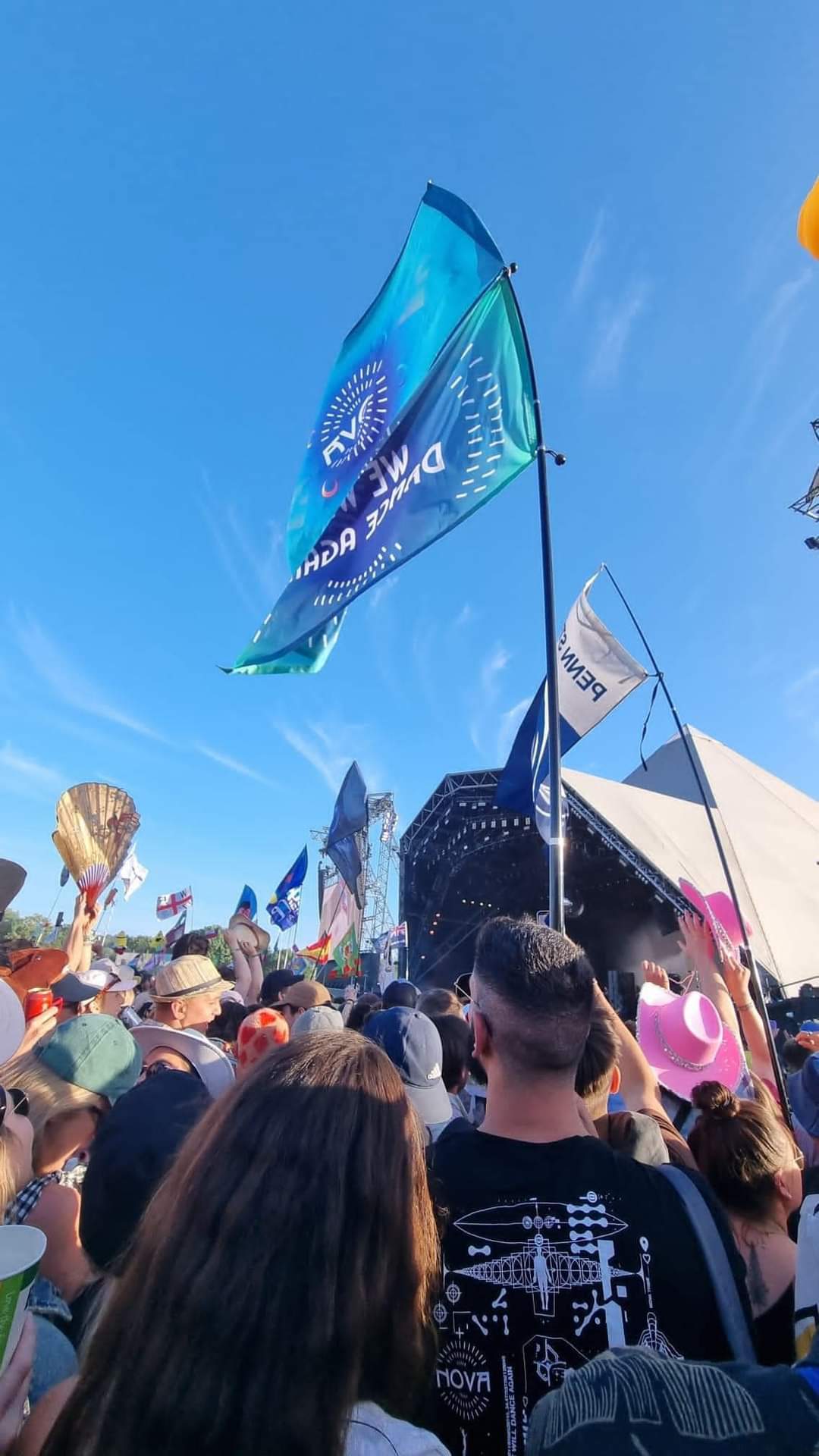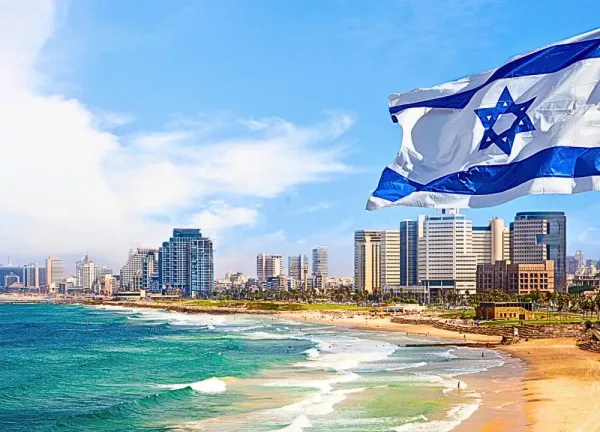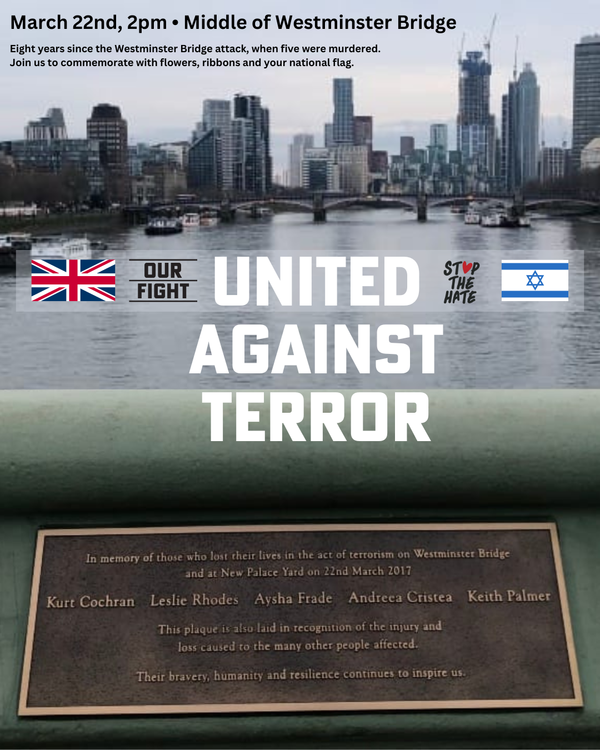Remembering Nova at Glastonbury
Liahav Eitan writes that the Glastonbury experience this year was a raw reminder that at a similar festival in Israel, young people had been slaughtered by Islamist hate. Yet despite the lack of empathy for the Nova victims, from performers and many festival-goers, he found new friends and allies.
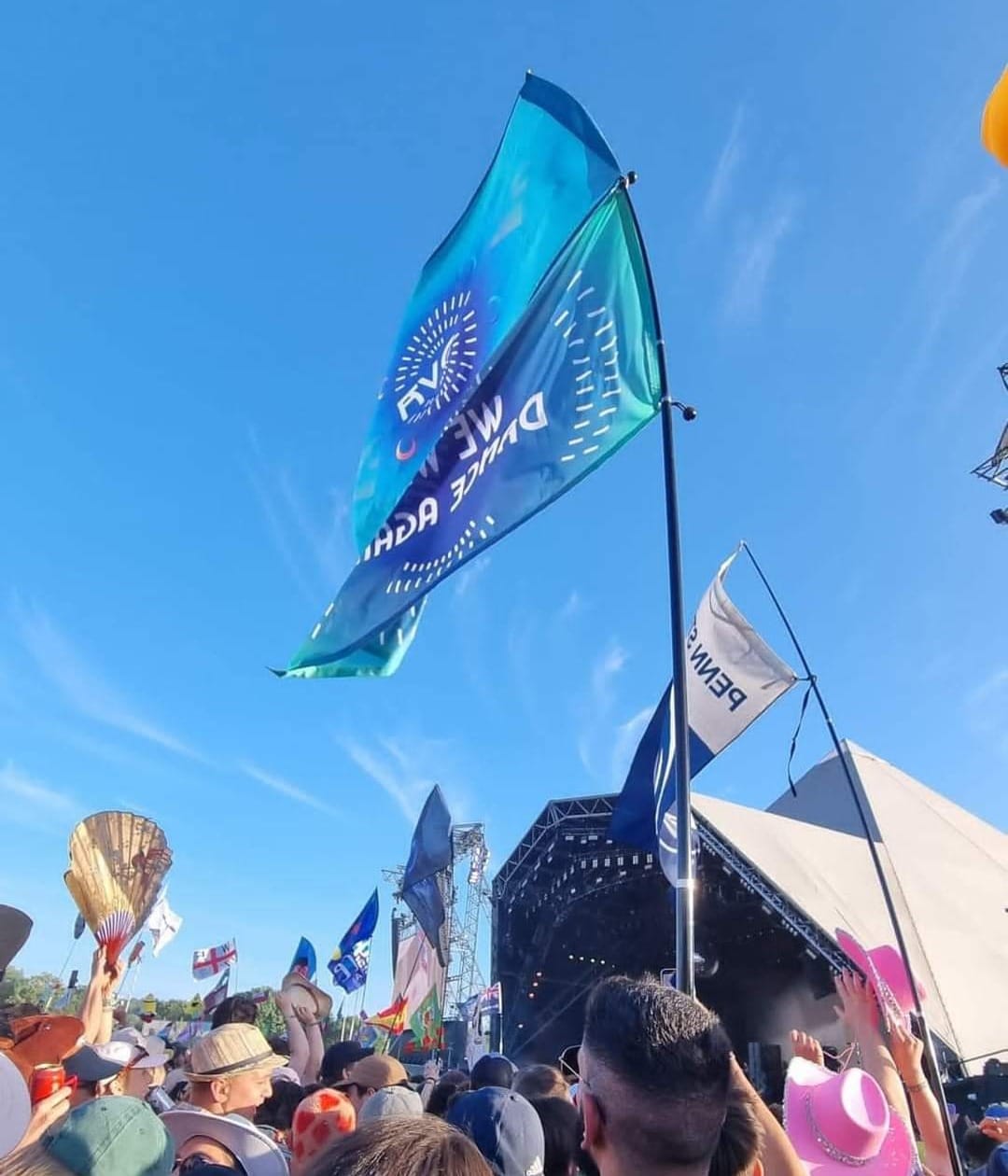
While by no means my first, this year's Glastonbury felt very different to me.
It was the first Glasto since 7.10, and the first festival I went to since Nova, the music festival in Israel where thousands of festival-goers had to run for their lives under gun and rocket fire, where hundreds were tortured, gang-raped and murdered, and dozens were kidnapped, most of whom are still held hostage.
So Glastonbury 2024 was a difficult and complex experience. Every little detail was extremely triggering: the stage designs, the outfits, the sunrise, the face jewels, the dust, the para-gliders, the drone display, the fireworks...the list goes on.
It's hard for strangers to understand how us Jews spent every minute of Glastonbury thinking about our brothers and sisters that were slain that day, about their families, about the survivors and the hostages.
My method of dealing with my vicarious trauma whilst in Glastonbury was to carry with me two flags: the official Nova flag and one that read We Will Dance Again, a phrase that after the massacre, has become the symbol of solidarity with the Nova community, and of positive resistance among the Jewish community.
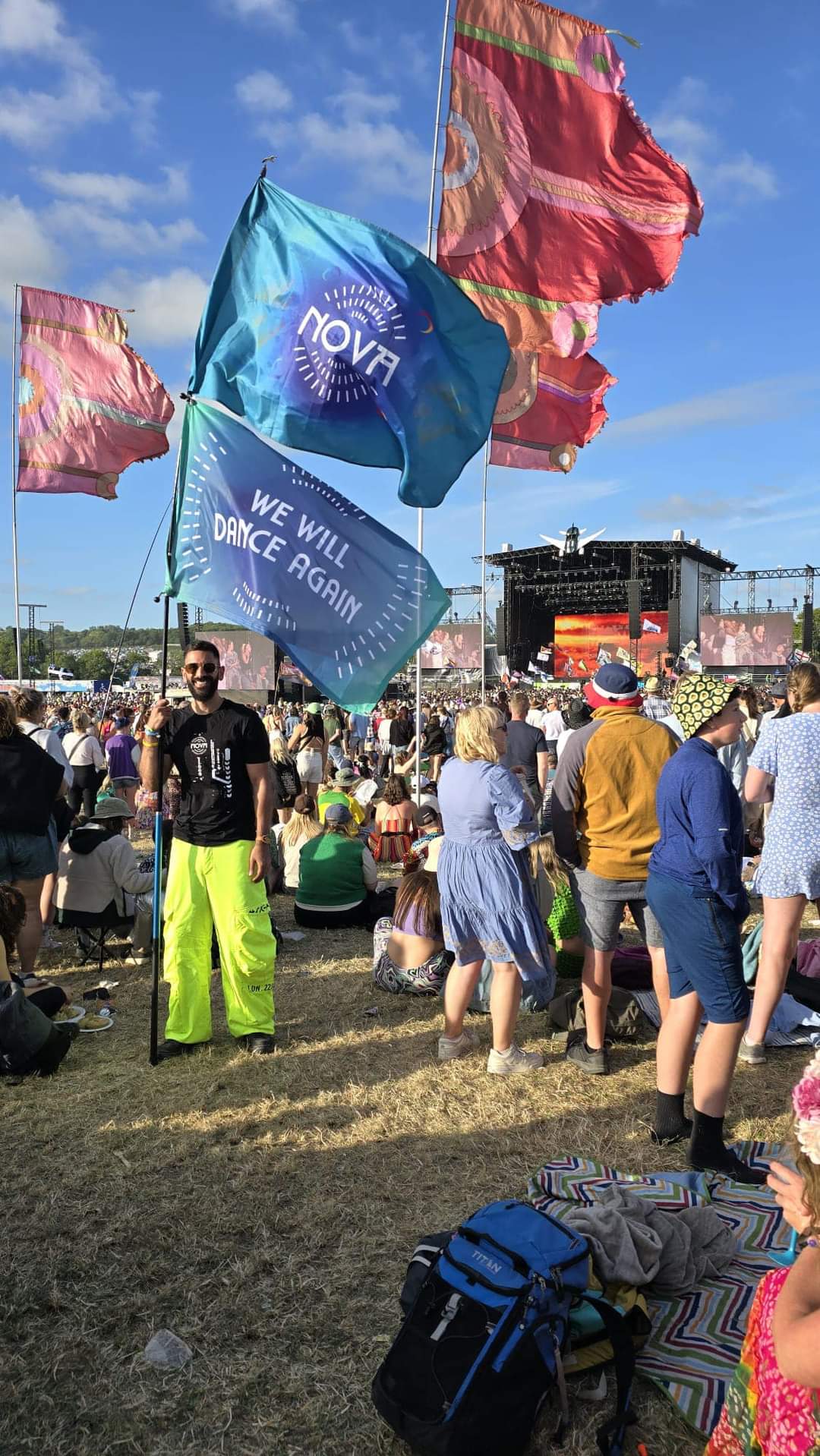
The flags were meant to express that while I was physically at Glastonbury, my heart and my thoughts were with the Nova community, and every last dance was dedicated to them. To me, it was unthinkable to attend a music festival without acknowledging Nova and paying my respects.
Unfortunately, some of the people I went with to the festival–including some I had considered friends–were unsympathetic to my gesture of grief. When I put up the flags next to my own tent, they asked me to take them down, citing concerns about "irrational people" associating their tents with mine and vandalising them. When I refused, they 'decorated' their own tents with some Palestinian merch, including a Boycott Israeli Apartheid sticker, presumably to 'protect' them.
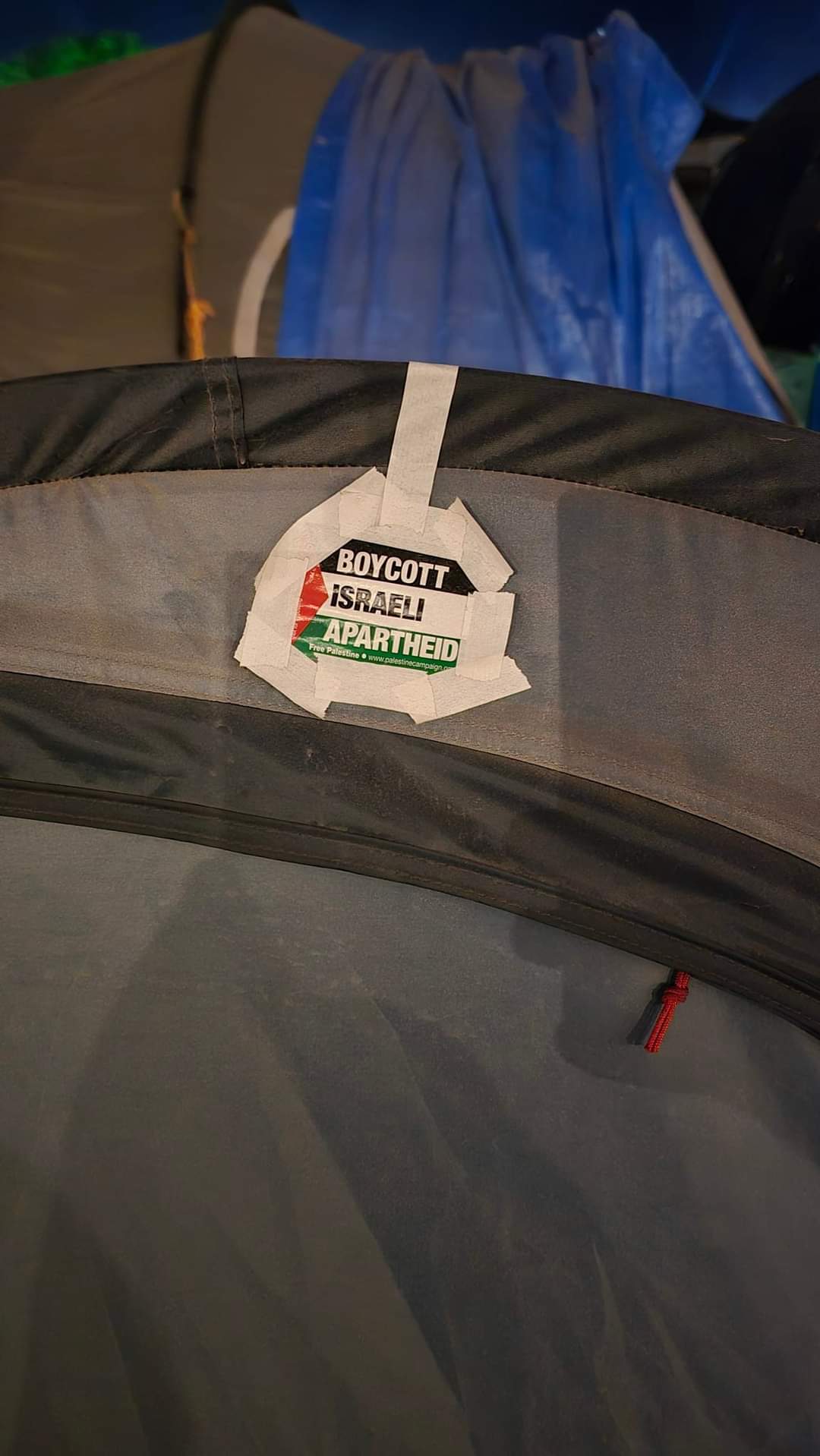
The irony is not lost on me that by trying to force me to hide my Jewish-Israeli identity and silence my grief–as well as spreading the "apartheid" blood-libel–for their own protection, they actually created the anti-Semitic incident they claimed to be worried about.
They probably never considered just how inappropriate, hateful and disrespectful to our dead it is to respond to our mourning with the flags of those who murdered them. How close they came to gloating over it, to celebrating dead Jews, just like others did in London and all over the world on the 7th of October. From that point on, some people in the group completely shunned me and my wife, Efi.
A few others in the group made a point of being extra-nice to us, for which I'm grateful, and thankfully–and somewhat surprisingly–outside our small group of 'friends', we got nothing but love for carrying those flags. We couldn't walk five minutes without someone stopping to give us a hug, thank us for carrying the flags, take pictures with us, dance with us, cry with us in their memory. We got to meet so many amazing people dealing with the trauma in their own ways, including gestures of their own: anything from a We Will Dance Again t-shirt or a #bringthemhomenow bracelet, to Free the Hostages written all over their chest. So many people felt included, empowered and safer when seeing those flags, and we were so grateful for their love and for the opportunity to meet them and share this experience.
Waking up to see the 'boycott' sticker each morning, I couldn't help but smile, think of all the love I'd received at the festival, and really feel the meaning of Our Love is Stronger Than Their Hate. Even non-Jewish people who didn't know about the Nova festival but cared to ask, had nothing but love and empathy to offer, regardless of their political views or thoughts about the war. Their warm and kind reactions showed me that there is a silent majority of British people, who see and acknowledge the Jewish and Israeli pain, and oppose the wave of hate towards us. They wanted us to be able to wear our identity with pride, and were very happy to see our presence.
My main takeaway from this experience is that despite the biased media and despite anti-Semitism running wild, we have more allies than we might think. Even though they tend to be silent, there are a lot of decent people in this country who want us included. The Jewish community needs to be more visible, to stop being intimidated, to wear its identity with pride. We are a new Jewish generation, and in the face of hate, we will not hide and we will not bow down. We will dance again, and again, for as long as it takes.
